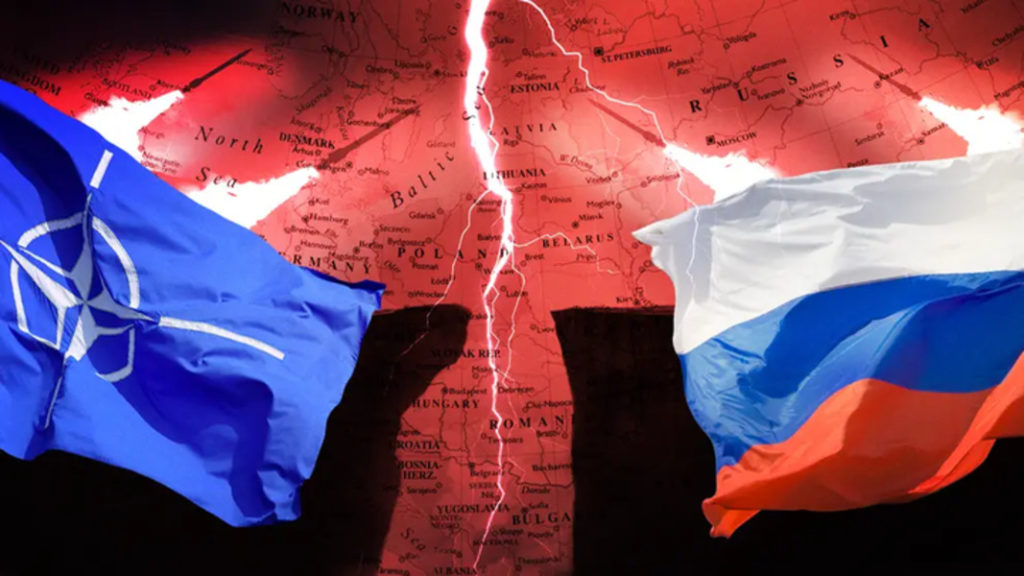The events of February 2022 clearly showed that the strategic uncertainty on Ukraine’s participation in NATO has negatively affected European security. At the same time, after the unprecedentedly rapid integration of Finland into the Alliance, everything ended with Russia’s threats of an “immediate response” to NATO expansion along its borders.
In the 16 months of the war against Ukraine, Russia’s military capabilities have been significantly weakened — and this window of opportunity should be used. Having the world’s second-largest nuclear arsenal, a weakened, unstable Russia, torn apart by internal contradictions, is an increased risk factor for European security. This requires an additional and quick strengthening of the Eastern European flank. Ukraine’s accession to NATO is the best and mutually beneficial scenario for both sides. By expanding the eastern flank, the Alliance will strengthen European security and replenish its ranks with an experienced ally that has been opposing one of the largest armies in the world for a year and a half (while at the beginning of the invasion, the world community gave a negative assessment for the sovereignty and integrity of Ukraine).
While rebuffing aggression of the Russian Federation, Ukraine has proved that it is an integral part of the European family and serves as an integral part of its security. While containing Russian aggression on its territory, Ukraine serves as a guarantor of peace in Europe. It is foolish to believe that Russia would stop at the complete occupation of Ukraine in case of no resistance — an aggressive state would use it as a base area for a further attack on Europe. That is why Ukraine is an important frontier for the defense of all of Europe.
Based on this, Ukraine’s entry into NATO should take place as quickly as possible — even in the case of integration after the end of the war, Ukraine’s Atlantic path should take place without a MAP. It is essential not to repeat the mistakes of Bucharest-2008, when the world procrastinated and underestimated the degree of threat posed by Russia. As a result, Moscow attacked Ukraine, despite the fact that it posed absolutely no threat. At the same time, Ukraine’s accession to NATO will become the most effective deterrent for Russia, which will seek revenge and, having accumulated strength, will repeat the attempt of aggression. That is its imperialist nature. Undoubtedly, the re-invasion will be even more cruel, and if Russia manages to advance to the EU territory, it will commit even larger terrorist attacks and genocide of the civilian population.
Security is the foundation of stability, and Ukraine’s accession to NATO guarantees not only its strengthening. The logical chain is very simple: the early victory of Ukraine will allow reducing defense spending as early as possible, and as a result, will improve the economic situation in Europe. The Atlantic integration of Ukraine will be an impetus for the European economy, and in a certain sense, for its qualitative renewal. Post-war Ukraine will become a favorable environment for investment and a reliable partner for doing business. Its security, backed up by NATO guarantees, will have a positive impact on the economic climate of the entire Eastern European region. In contrast, pacifying Russia and cooperation with it, on the contrary, entails the risk of stagnation, sanctions and significant reputational risks.
Ukraine already meets many of the criteria for NATO membership. During the 16 months of the war against Russia, the country has significantly modernized its defense industry thanks to the supply of NATO weapons from partners, joint exercises and practicing of the new skills by the Ukrainian Defense Forces. The Ukrainian army is currently the most combat-ready and experienced army in Europe — and in fact, only the political will of the Alliance is needed for Ukraine’s accession in order to restore the historical dignity of Europe. Ukraine already has close relations with NATO, which have become even stronger after February 24, 2022, but only official accession to the Alliance is a direct guarantee.
Vilnius is the best place to bring cooperation between Ukraine and NATO to a qualitatively new level. Any delay in Ukraine’s Atlantic integration would be unfair to the Ukrainian people, who are actively fighting against the most brutal aggressor of our time, and could repeat the mistakes of the Bucharest Summit in 2008, which would strengthen Russia’s confidence that it has influence on decisions of sovereign states. The collective cohesion and determination of the Alliance is what Russia is so afraid of, and what is urgently needed now, because only joint can defeat the bloody aggressor and restore stability in the European region.

